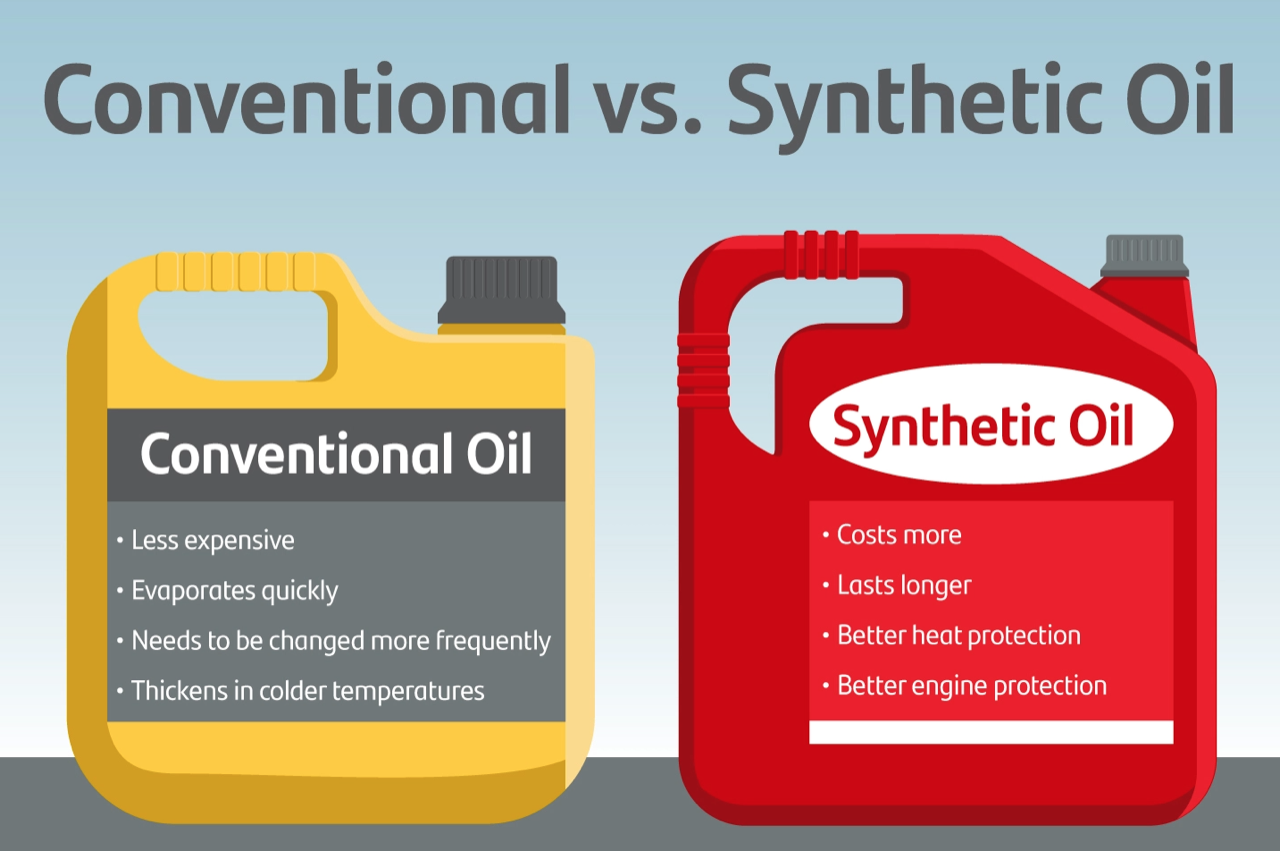Synthetic oil vs. conventional oil
Synthetic Oil vs. Conventional Oil: Navigating the Lubricant Dilemma
Introduction
In the world of automotive maintenance, one crucial decision vehicle owners face is choosing between synthetic oil and conventional oil. The type of oil you pour into your engine plays a pivotal role in its performance and longevity. Let's dive into the synthetic oil vs. conventional oil debate to unravel the complexities and help you make an informed choice for your vehicle.
Composition Differences
Synthetic oil is engineered in a laboratory, using a precisely controlled process to create a tailored molecular structure. In contrast, conventional oil is derived from crude oil through a refining process. The molecular differences lead to variations in performance, with synthetic oil often offering superior lubrication and protection.
Performance and Efficiency
One of the significant advantages of synthetic oil is its ability to provide improved lubrication, reducing friction and wear on engine parts. The composition also results in cleaner engines, as synthetic oil is less prone to sludge formation. Additionally, synthetic oil performs exceptionally well in cold weather, ensuring optimal engine function even in extreme temperatures.
Cost Considerations
While the upfront cost of synthetic oil is higher than that of conventional oil, a long-term cost analysis may reveal a different picture. Synthetic oil's durability and extended change intervals could translate into savings over time, making it a value-for-money option for some vehicle owners.
Environmental Impact
The environmental impact of your oil choice is a crucial consideration. Synthetic oil, while offering better engine protection, raises concerns about its manufacturing process and recycling. Conventional oil, derived from finite natural resources, poses its own set of environmental challenges. Choosing the lesser of two evils requires a careful evaluation of your priorities.
Engine Lifespan
Synthetic oil often contributes to an extended engine lifespan due to its superior lubricating properties. However, conventional oil, when used correctly and changed regularly, can still support a healthy engine. Maintenance habits and overall durability play vital roles in determining the longevity of your vehicle's engine.
Compatibility with Older Vehicles
Owners of older vehicles may wonder whether synthetic oil is a suitable choice. While synthetic oil offers benefits like reduced friction, compatibility issues may arise in certain older engines. Conventional oil, being time-tested, may be a more straightforward option for classic car enthusiasts.
Viscosity and Temperature Stability
The viscosity of oil is crucial for proper engine lubrication. Synthetic oil tends to maintain stable viscosity across a broader temperature range, ensuring consistent performance. Conventional oil may struggle in extreme temperatures, potentially affecting engine efficiency.
Common Myths and Misconceptions
Dispelling myths about synthetic oil's impact on seals and gaskets is essential. Similarly, addressing misconceptions about conventional oil being outdated is crucial. Educating consumers on the facts behind these myths empowers them to make the right choice for their vehicles.
User Experiences and Testimonials
Real-world experiences from vehicle owners can provide valuable insights. Stories of improved fuel efficiency, smoother engine operation, and fewer maintenance issues with synthetic oil can influence decision-making. Comparisons with conventional oil experiences add depth to the narrative, offering a holistic view.
Manufacturer Recommendations
Car manufacturers often provide guidelines on the type of oil to use. Deviating from these recommendations may have implications for warranty coverage and overall engine performance. Consulting your vehicle's manual is a simple yet effective way to ensure you're using the right oil.
DIY Oil Change Tips
For those inclined to change their oil at home, a step-by-step guide for both synthetic and conventional oil changes is essential. Knowing the tools needed, potential pitfalls, and safety precautions ensures a smooth and successful oil change, regardless of the chosen oil type.
Innovation in Synthetic Oils
Advancements in synthetic oil technology continue to redefine industry standards. From improved additives to better viscosity control, staying informed about these innovations can help vehicle owners make choices aligned with the latest in lubrication science.
Choosing the Right Oil for Your Vehicle
Ultimately, the decision between synthetic and conventional oil depends on various factors, including your vehicle's age, your driving habits, and environmental considerations. Consult your vehicle's manual, seek professional advice, and weigh the pros and cons before making a decision.
Conclusion
In the synthetic oil vs. conventional oil debate, there is no one-size-fits-all answer. Both options have their merits and drawbacks, and the right choice depends on your unique circumstances. By understanding the nuances of each oil type, you can make an informed decision that aligns with your priorities and values.
Frequently Asked Questions (FAQs)
- Can I switch from conventional to synthetic oil mid-way through my vehicle's life?
- Yes, but it's essential to follow proper procedures and consult your vehicle's manual.
- Does synthetic oil really offer better fuel efficiency?
- In many cases, yes. The reduced friction and improved lubrication can contribute to better fuel economy.
- Is synthetic oil suitable for all engines, including older models?
- While synthetic oil is compatible with many engines, older models may require careful consideration due to potential compatibility issues.
- Do I need to change my oil filter when switching from conventional to synthetic oil?
- It's generally recommended to change the oil filter when switching oil types to ensure optimal performance.
- What happens if I ignore the manufacturer's oil recommendations?
- Deviating from manufacturer recommendations may void warranty coverage and impact engine performance. Always follow the guidelines provided.




Comments
Post a Comment